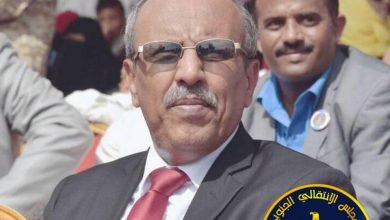REMARKS BY UN SPECIAL ENVOY FOR YEMEN, HANS GRUNDBERG, CONFERENCE SPONSORED BY GULF COOPERATION COUNCIL ON YEMEN

SMA NEWS – GENEVA
Your Excellencies, Secretary-General Al-Hajraf, Secretary-General Taha, Assistant Secretary-General Al Thawadi, Ms. Al Zouba, Ambassadors, ladies and gentlemen.
Thank you, Your Excellency, Secretary General Al-Hajraf, for hosting this important meeting on Yemen. The United Nations is grateful for all the GCC’s efforts over the years to bring an end to the suffering in Yemen caused by this conflict. I welcome all diplomatic initiatives to support the United Nations’ efforts to resume an inclusive, intra-Yemeni political process.
I am very pleased to be with you today. I am a firm believer in strengthening the United Nations’ cooperation with regional organizations to advance peace and security. Indeed, this kind of cooperation is enshrined in the United Nations Charter. In the case of Yemen, regional organizations and actors – including of course the GCC — have long played a crucial role. Riyadh has offered a space for dialogue leading to important agreements, such as the GCC Initiative and the Riyadh Agreement. We need the region’s support as much as ever to move towards an inclusive political process under the United Nations auspices.
Ladies and gentlemen,
The peace process in Yemen has stalled for too long. The last time Yemenis from different sides of the conflict engaged in face-to-face discussions about a comprehensive political solution was in 2016, in Kuwait. And I want to recall and commend the crucial role that Kuwait played in supporting the United Nations during those talks.
Over the past years, the damage caused by the conflict has accumulated. Yemen’s state institutions and social fabric have eroded and fragmented. The war has decimated the national economy. Civilians have been killed, injured and displaced. Citizens lack basic services, including electricity and fuel. They suffer from severe restrictions on their freedom of movement. The younger generation is being deprived of its future. The worsening economic and humanitarian conditions have a disproportionate impact on women, children and marginalized groups.
Ladies and gentlemen,
The longer the conflict goes on, the more severe the impact on civilians, and the more difficult to reverse the damage. The Yemeni people need to see a clear path out.
That is why I am developing a Framework to chart a way toward reaching an inclusive political settlement. The Framework will outline a multitrack process, covering economic, military and political priorities. Earlier this month, I launched a series of structured consultations to identify the short- and the longer-term priorities for this multitrack process. I have been encouraged by the enthusiastic participation of Yemeni political parties, components, experts and civil society representatives in this process.
Across the plurality of voices, a common message has emerged – Yemenis want the war to end, and they want a just and durable peace. They want an immediate end to hostilities, and measures to mitigate the impact of the conflict on civilians. Participants have welcomed the intention of my Office to launch an economic track, to address widespread humanitarian suffering and economic conditions. I will resume my consultations in the coming weeks, and I hope representatives of all major Yemeni groups will participate.
Ladies and gentlemen,
In parallel to these consultations, and indeed in parallel to violent escalation, we have seen some positive developments. For over two months I have been engaging with the parties on reaching a truce and we are making progress. Yemen needs a truce. I am engaging with the parties with a sense of urgency to reach this truce by the beginning of Ramadan. The truce proposal includes easing of the fuel crisis and facilitation of the freedom of movement. It will bring some immediate relief to the Yemeni people, especially during the holy month of Ramadan. The recent unilateral announcements by the parties on temporary halts to military operations are a step in the right direction.
Ladies and gentlemen,
I wish you the most success for this important meeting. I hope that through this meeting, solutions can be found to some of the dire economic challenges Yemenis are facing and enhance the functioning of state institutions. Yemen needs more support, including from its GCC neighbors, to improve basic services, including access to electricity, ensure security and stabilize the economy.
Most importantly, I hope that the next week of discussions here in Riyadh will help increase momentum toward bringing the Yemeni parties back to the negotiating table under the United Nations auspices. I also hope this meeting will convey a genuine sense of urgency on the need for dialogue, compromise and commitment to a peaceful solution to the conflict. On the need for a future in which Yemenis can coexist with equal citizenship, and begin the process of national reconciliation. And about a future of accountable governance and state institutions that serve citizens equitably. A future in which Yemenis’ human rights are respected, and social and economic justice is ensured. By working in concert, the international community can help bring Yemen closer to such a peaceful future.
Thank you very much, ladies and gentlemen.






